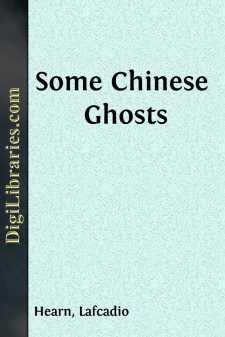Categories
- Antiques & Collectibles 13
- Architecture 36
- Art 48
- Bibles 22
- Biography & Autobiography 813
- Body, Mind & Spirit 142
- Business & Economics 28
- Children's Books 16
- Children's Fiction 13
- Computers 4
- Cooking 94
- Crafts & Hobbies 4
- Drama 346
- Education 46
- Family & Relationships 57
- Fiction 11829
- Games 19
- Gardening 17
- Health & Fitness 34
- History 1377
- House & Home 1
- Humor 147
- Juvenile Fiction 1873
- Juvenile Nonfiction 202
- Language Arts & Disciplines 88
- Law 16
- Literary Collections 686
- Literary Criticism 179
- Mathematics 13
- Medical 41
- Music 40
- Nature 179
- Non-Classifiable 1768
- Performing Arts 7
- Periodicals 1453
- Philosophy 64
- Photography 2
- Poetry 896
- Political Science 203
- Psychology 42
- Reference 154
- Religion 513
- Science 126
- Self-Help 84
- Social Science 81
- Sports & Recreation 34
- Study Aids 3
- Technology & Engineering 59
- Transportation 23
- Travel 463
- True Crime 29
Kokoro Japanese Inner Life Hints
by: Lafcadio Hearn
Description:
Excerpt
AT A RAILWAY STATION
Seventh day of the sixth Month;— twenty-sixth of Meiji.
Yesterday a telegram from Fukuoka announced that a desperate criminal captured there would be brought for trial to Kumamoto to-day, on the train due at noon. A Kumamoto policeman had gone to Fukuoka to take the prisoner in charge.
Four years ago a strong thief entered some house by night in the Street of the Wrestlers, terrified and bound the inmates, and carried away a number of valuable things. Tracked skillfully by the police, he was captured within twenty-four hours,—even before he could dispose of his plunder. But as he was being taken to the police station he burst his bonds, snatched the sword of his captor, killed him, and escaped. Nothing more was heard of him until last week.
Then a Kumamoto detective, happening to visit the Fukuoka prison, saw among the toilers a face that had been four years photographed upon his brain. "Who is that man?" he asked the guard. "A thief," was the reply,—"registered here as Kusabe." The detective walked up to the prisoner and said:—
"Kusabe is not your name. Nomura Teichi, you are needed in
Kumamoto for murder." The felon confessed all.
I went with a great throng of people to witness the arrival at the station. I expected to hear and see anger; I even feared possibilities of violence. The murdered officer had been much liked; his relatives would certainly be among the spectators; and a Kumamoto crowd is not very gentle. I also thought to find many police on duty. My anticipations were wrong.
The train halted in the usual scene of hurry and noise,—scurry and clatter of passengers wearing geta,—screaming of boys wanting to sell Japanese newspapers and Kumamoto lemonade. Outside the barrier we waited for nearly five minutes. Then, pushed through the wicket by a police-sergeant, the prisoner appeared,—a large wild-looking man, with head bowed down, and arms fastened behind his back. Prisoner and guard both halted in front of the wicket; and the people pressed forward to see—but in silence. Then the officer called out,—
"Sugihara San! Sugihara O-Kibi! is she present?"
A slight small woman standing near me, with a child on her back, answered, "Hai!" and advanced through the press. This was the widow of the murdered man; the child she carried was his son. At a wave of the officer's hand the crowd fell back, so as to leave a clear space about the prisoner and his escort. In that space the woman with the child stood facing the murderer. The hush was of death.
Not to the woman at all, but to the child only, did the officer then speak. He spoke low, but so clearly that I could catch every syllable:—
"Little one, this is the man who killed your father four years ago. You had not yet been born; you were in your mother's womb. That you have no father to love you now is the doing of this man. Look at him—[here the officer, putting a hand to the prisoner's chin, sternly forced him to lift his eyes]—look well at him, little boy! Do not be afraid....





















